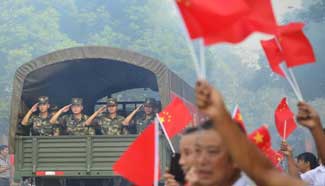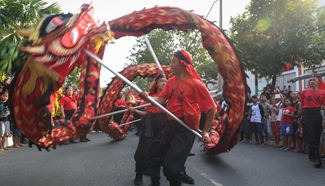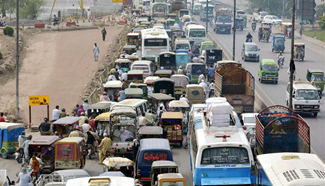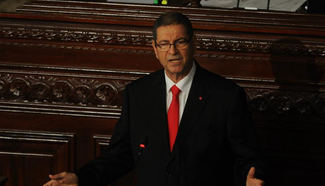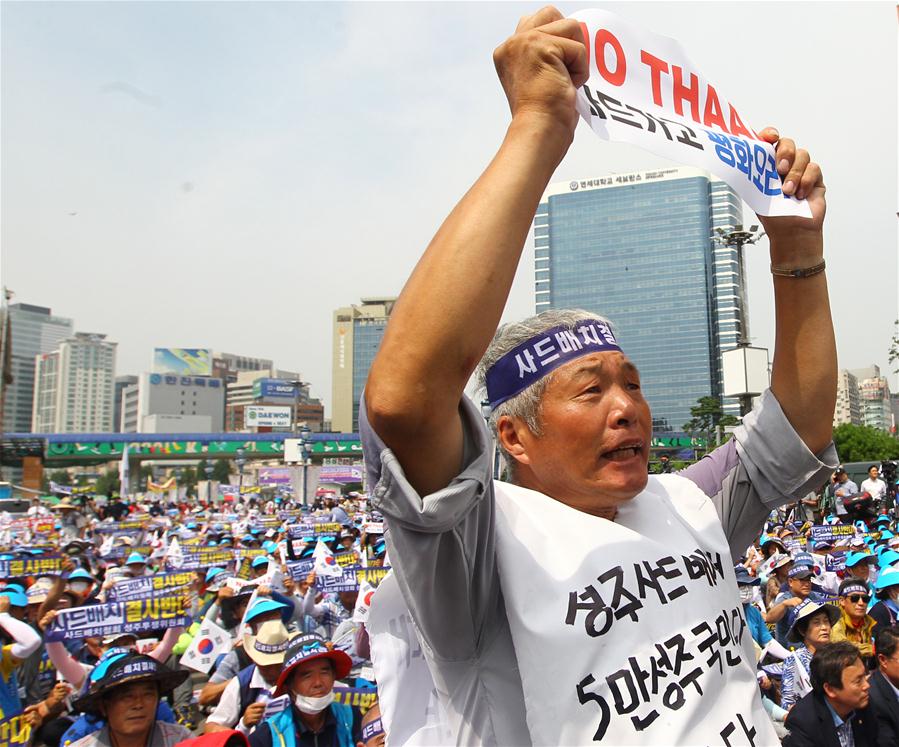
A man from Seongju county holds a banner to protest against the deployment of the Terminal High Altitude Area Defense (THAAD), during a rally in Seoul, capital of South Korea, on July 21, 2016. More than 2,000 people from Seongju county, where one THAAD battery will be deployed, gathered at a square in Seoul for a rally on Thursday, to protest against the deployment of THAAD. (Xinhua/Yao Qilin)
by Xinhua Writer Tian Dongdong
BEIJING, July 31 (Xinhua) -- With the installation of an anti-missile missile system that can hardly cover Seoul but is able to spy on China and Russia's Far East, the United States aims to defend nobody in East Asia, but its insatiable appetite for hegemony and military advantage.
The hidden agenda of Uncle Sam in deploying the Terminal High Altitude Area Defense system (THAAD) on the southeastern part of the Korean Peninsula is perfectly based on its excuse of a so-called "missile threat" from the Democratic People's Republic of Korea (DPRK), which is deemed as "rogue state" and "axis of evil" by Washington.
Defending allies from bullying by missiles of a "rogue state" naturally strengthens Washington's moral high ground. Nevertheless, the reality is far less noble than what Uncle Sam portraits.
The fact that THAAD shields all U.S. barracks on the peninsula while leaving Seoul and its surrounding cities housing almost half of the country's population unprotected completely unmasks Uncle Sam's hidden agenda.
For starters, deploying THAAD in South Korea is a crucial step to heal the Achilles heel of Washington's anti-missile missile system in the Asia Pacific, which has long been nagged by its inadequate recognition ability.
With the help of THAAD's X band radar commanding surveillance of an area that extends over 1,200 miles (1,900 kilometers) from the peninsula, i.e. almost half of China's territory and the southern part of Russia's Far East, the United States can effectively and immediately raise the recognition accuracy.
The second part of Washington's hidden agenda also concerns with the X band radar: If deployed, THAAD could help the U.S. army to collect radar data of warheads and decoys of China and Russia's strategic missiles by monitoring their experiments, thus enable the United States to neutralize their nuclear deterrence.
For all that, deploying THAAD in South Korea to encounter the so-called "missile threat" from a "rogue state" is yet another self-directed and self-acted Hollywood-style drama of Uncle Sam. What lies under the savior's costume is clear and simple -- his strategic anxiety and sateless appetite for supremacy and upper hand.
Related:
Commentary: New Cold War looms large in North East Asia as Seoul accepts THAAD
by Xinhua writer Liu Chang
BEIJING, July 29 (Xinhua) -- A new Cold War is looming large in Northeast Asia as Washington insists on installing an anti-missile shield in South Korea, a provocative move that could further split the region, trigger a fresh arms race and crush hopes of denuclearizing the Korean Peninsula.
Immediately after the Second World War, the U.S.-led Western bloc sought to dictate post-war world order and contain the Soviet Union to ensure global supremacy as well as the proliferation of capitalism and its set of values worldwide. And that was how the Cold War set in. Full story




